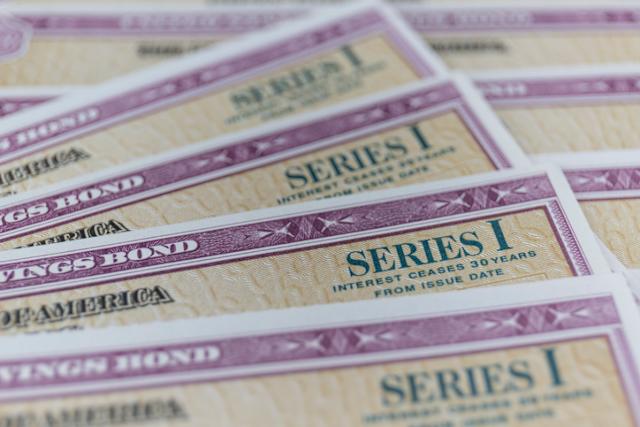Ask an Advisor: I'm 62 and Need ‘Reliable Income' in Retirement. What Investments Do You Suggest?

I'm 62 and will be turning 63 next month. I've been self-employed for most of my career and currently own a home that I rent out. I'm now considering investing in another property to help strengthen my retirement plan. Since I don't expect to receive much from Social Security, I'm looking for strategic and secure ways to invest my money and generate reliable income during retirement. What would you suggest?
Invest in Gold

American Hartford Gold: #1 Precious Metals Dealer in the Nation
Learn More
Priority Gold: Up to $15k in Free Silver + Zero Account Fees on Qualifying Purchase
Learn More
Thor Metals Group: Best Overall Gold IRA
Learn More Powered by Money.com - Yahoo may earn commission from the links above.Generating reliable income is one of the most common goals among future retirees, so you are certainly not alone in raising this question. While everyone will arrive at a different solution that meets their unique needs, everyone should start with a plan before deciding how and where to invest. We'll walk through why I think this is the case before outlining some income-oriented investments you can consider.
If you need help selecting investments and planning for retirement, speak with a financial advisor.
Develop a Plan Before Picking a Product
First things first, you should start with a plan. Even if you've done some planning already, a comprehensive financial review can help point you to the right solution. While generating income in retirement may be a goal, it should be addressed within the context of your overall financial situation-not in isolation.
Not to sound extreme, but I believe it would be negligent to pick investments without taking a complete inventory of your finances. You can start by answering the following questions:
-
What assets and liabilities do you currently have besides the home you rent out?
-
What income do you earn from self-employment, and how consistent is that income?
-
How much longer do you expect to work?
-
What are your anticipated income streams in retirement besides the small Social Security payments you expect to receive and rental income if you keep the property?
-
How much do you currently spend annually and how much will you spend in retirement?
-
Do you have a spouse and/or dependents?
-
What is your current health situation and expected longevity?
-
Do you have any legacy or charitable goals you wish to fund?
It's worth answering these questions before choosing any investments-especially a big-ticket rental property. Your responses can clarify how much income you'll need in retirement, how much risk you can take and what time horizon you're working with.
From there, you can select investments that you expect to meet your income (or total return) needs and fit your risk tolerance.
(And if you need help doing a holistic review of your finances or creating a financial plan, consider working with a financial advisor.)
Story ContinuesIncome-Oriented Investment Options
Once you've identified your income needs, risk tolerance and timeline, you can begin evaluating a range of investment options designed to generate reliable cash flow.
Real Estate
If you’re considering another rental property, first evaluate how it fits into your overall asset mix. Can you handle the concentration risk of one or two properties dominating your portfolio-especially with variable self-employment income? Can you reasonably expect full or near-full occupancy year-round? Will you pay cash or take out a mortgage-and if so, will rent cover your costs? Does projected net operating income (NOI) meet your financial targets and compare favorably with other options?
If direct ownership seems too concentrated or hands-on, listed real estate investment trusts (REITs) offer diversified exposure, though they carry equity market volatility. On the plus side, REITs can provide both dividend income and price appreciation.
Accredited investors might also consider private real estate, which may offer higher yields and tax benefits, but comes with limited liquidity. Many private vehicles restrict redemptions or lock up capital for several years, so they may not suit investors who need ready access to funds.
Fixed Income
SmartAsset and Yahoo Finance LLC may earn commission or revenue through links in the content below.
Bonds are a traditional source of income, but they vary widely in risk and return. U.S. Treasuries carry low risk and yields near 4% to 5%, depending on maturity-suitable for conservative investors.
Municipal bonds are popular among individual investors because their interest is typically exempt from federal-and sometimes state and local-income taxes. However, they still carry interest rate, liquidity, and call risks.
Corporate bonds offer higher yields to compensate for credit risk. Investment-grade corporates trade closer to Treasuries, while high-yield (or "junk") bonds offer larger spreads but come with greater default risk. Depending on credit quality, corporate bond yields typically range from about 4% to more than 7%.
(And if you need additional guidance, a financial advisor can help you evaluate different types of bonds for your investment portfolio.)
Cash and CDs
Cash is once again an interest-bearing asset. While interest rates remain near 4%, do not discount the value cash can play in a portfolio. Worthwhile cash equivalents include money market funds and savings accounts. Both are yielding close to 4% depending on the provider. CDs are another commonly used option. Yields depend on the term, but they are exposed to interest rate (reinvestment) risk and early withdrawal penalties if you end up needing the cash.
Dividend Stocks
Dividend stocks are another prominent income-producing asset. These can generate yields of 2-4%+ depending on the company. Like REITs, volatility is the main risk since at the end of the day you are investing in publicly traded stocks that will have a high correlation to broader equity markets.
Private Credit
Private credit is another variation of fixed income, but it shares some of the risks associated with private real estate-namely, liquidity risk. Loans to private companies are generally issued on a floating rate basis, so they do not have the same interest rate risk as fixed rate Treasuries or corporate bonds. However, most private companies are not rated by credit rating agencies, so investors typically ascribe a higher probability of default. This leads to larger credit spreads and, as a result, higher yields. Yields in private credit can reach high-single or low-double-digits.
(A financial advisor can help you evaluate whether private credit and other alternative investments belong in your portfolio.)
Private Infrastructure
Once again, private infrastructure investors need to consider their liquidity needs before investing. But for those who can withstand illiquidity, infrastructure can offer mid-single-digit yields with appreciation potential. These assets-think cell towers, toll roads and power projects-can also provide inflation protection through contractual escalators.
Diversification Is the Only Free Lunch
The saying "diversification is the only free lunch" conveys a key investing concept: by spreading your money across different types of investments, you can reduce overall risk without necessarily lowering your expected return.
Each investment type comes with its own set of risks, and diversification is a straightforward way to manage those risks. Instead of relying on a single stock, bond, property or even one asset class, consider building a portfolio that blends different asset types to generate the income you need while aligning with your risk tolerance. If you prefer to focus on fixed income, a laddered bond portfolio can add diversification through staggered maturities.
Spreading your investments across asset classes or time horizons helps reduce variability in outcomes and may improve your chances of meeting your financial goals. (And if you need help diversifying your portfolio, work with a financial advisor.)
Bottom Line
While income becomes a priority for many investors nearing retirement, it's important to frame this goal within the broader context of your financial plan. Doing so helps define your income needs and risk tolerance, which in turn guides how you allocate capital to income-producing assets. A diversified portfolio that blends investments with varying risk and return characteristics can then be structured to support your retirement income needs.
Retirement Planning Tips
-
An experienced financial advisor can build cash flow models, assess withdrawal strategies and evaluate tax impacts across accounts. Finding a financial advisor doesn't have to be hard. SmartAsset's free tool matches you with vetted financial advisors who serve your area, and you can have a free introductory call with your advisor matches to decide which one you feel is right for you. If you're ready to find an advisor who can help you achieve your financial goals, get started now.
-
Simulate market downturns and unexpected expenses using financial planning software or advisor tools. Testing a 4% withdrawal strategy under various return scenarios can reveal whether you may need to adjust spending or asset allocation.
Jeremy Suschak, CFP®, is a SmartAsset financial planning columnist who answers reader questions on personal finance topics. Got a question you'd like answered? Email [email protected] and your question may be answered in a future column.
Jeremy is a financial advisor and head of business development at DBR & Co. He has been compensated for this article. Additional resources from the author can be found at dbroot.com.
Please note that Jeremy is not a participant in SmartAdvisor AMP, is not an employee of SmartAsset and he has been compensated for this article.
Photo credit: ©iStock.com/Courtesy of DBR & Co, ©iStock.com/jetcityimage, ©iStock.com/TrixiePhoto
The post Ask an Advisor: I'm 62 and Need ‘Reliable Income' in Retirement. What Investments Do You Suggest? appeared first on SmartReads by SmartAsset.














